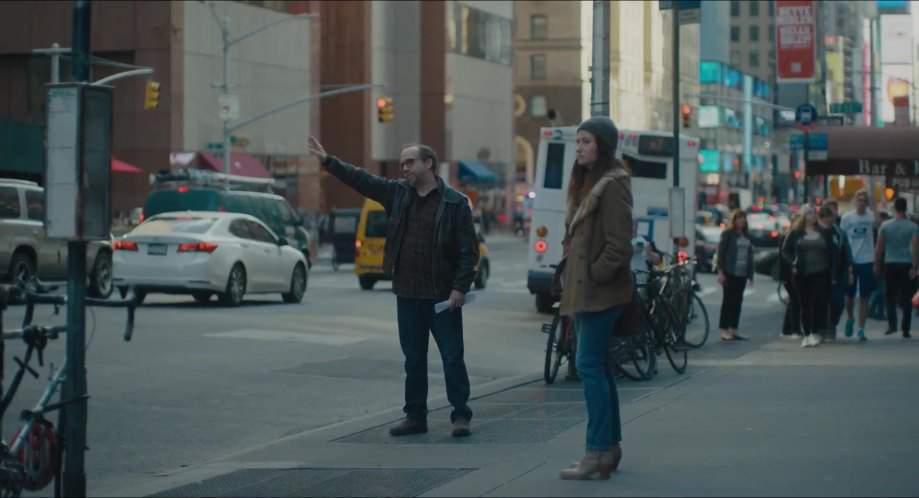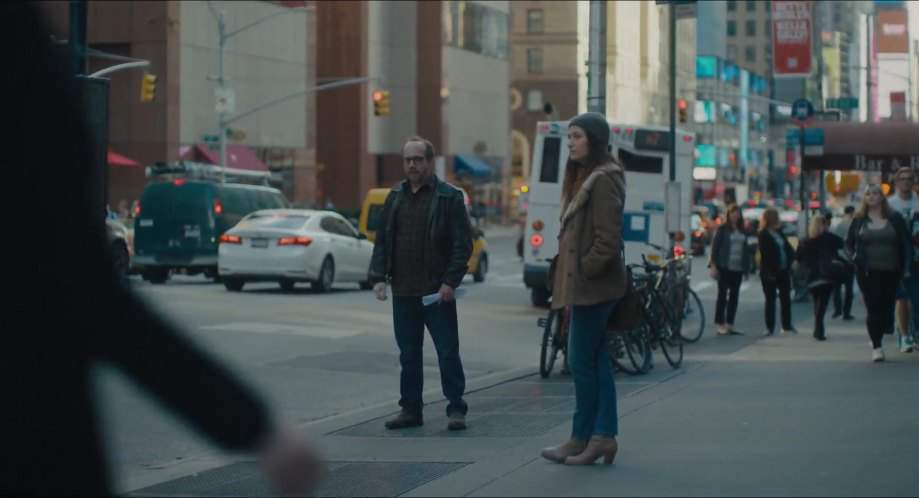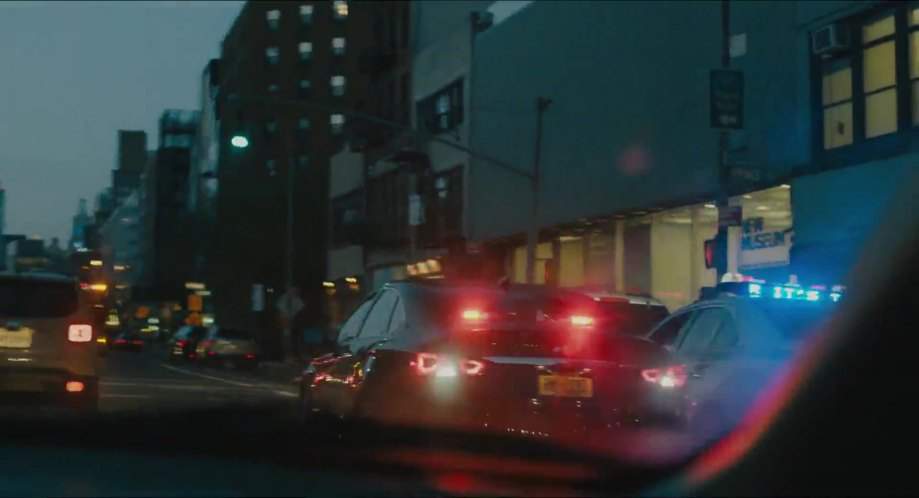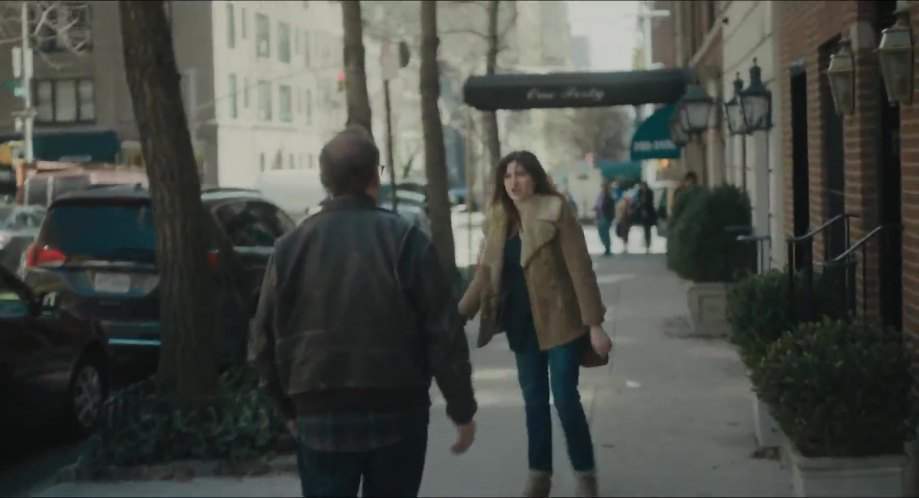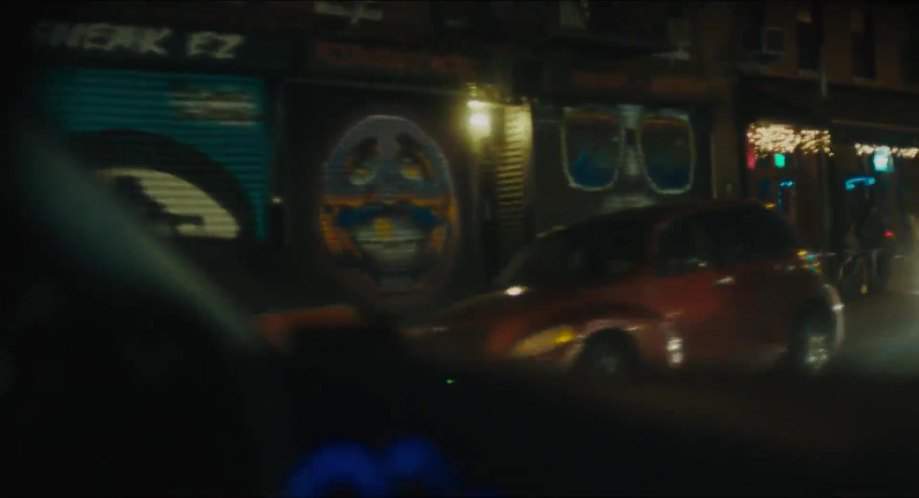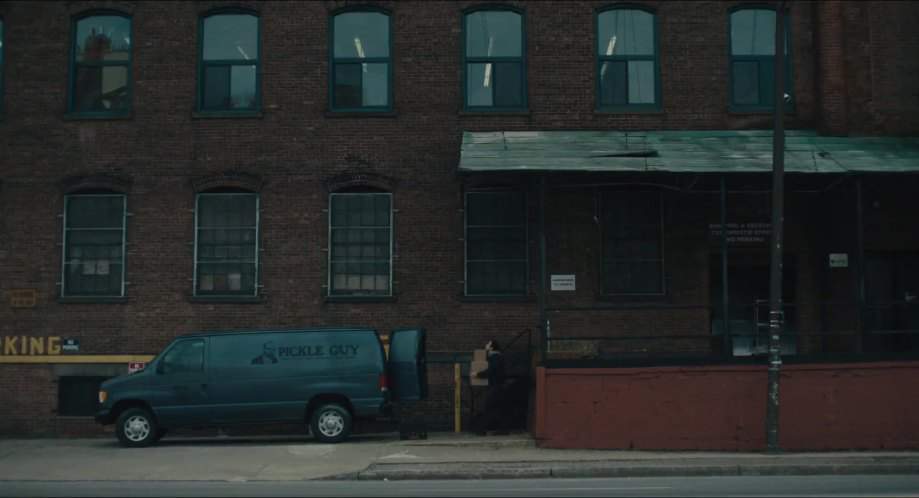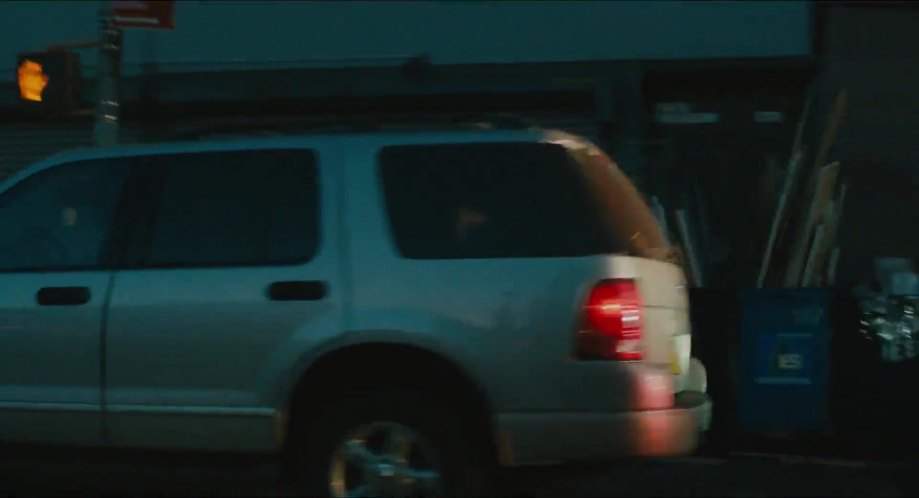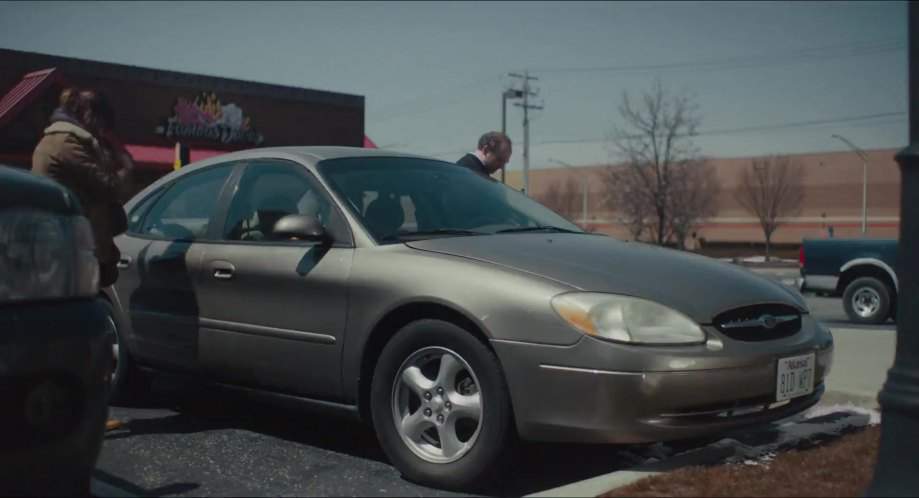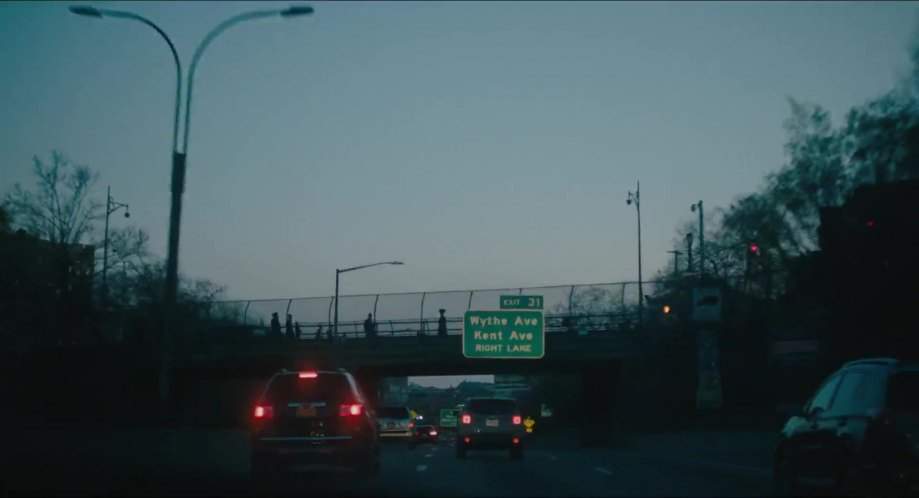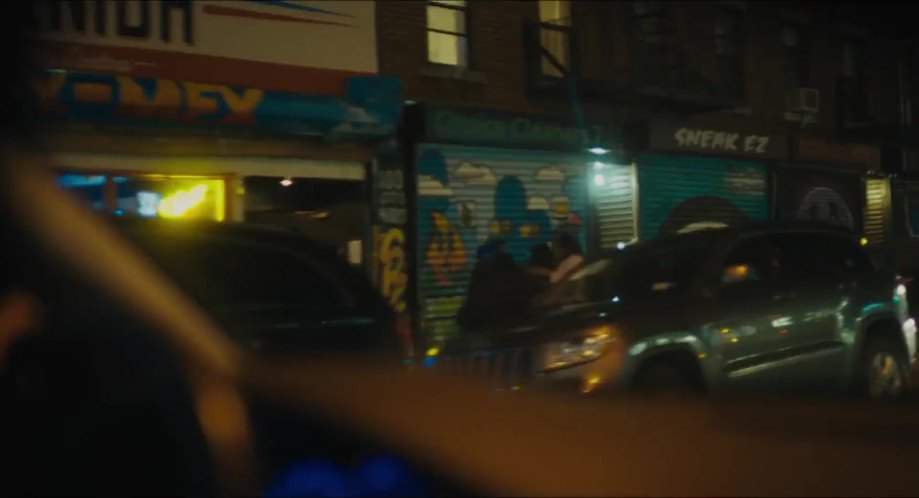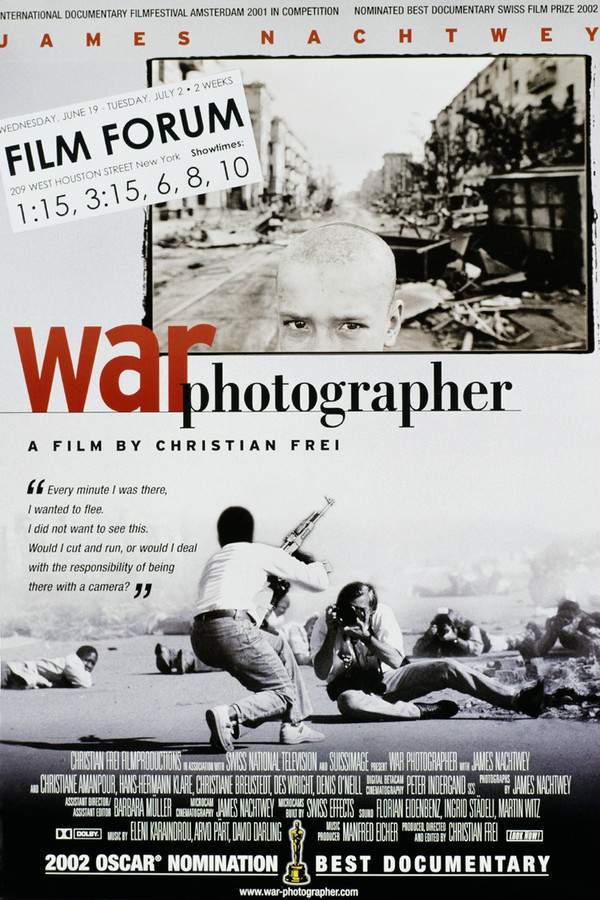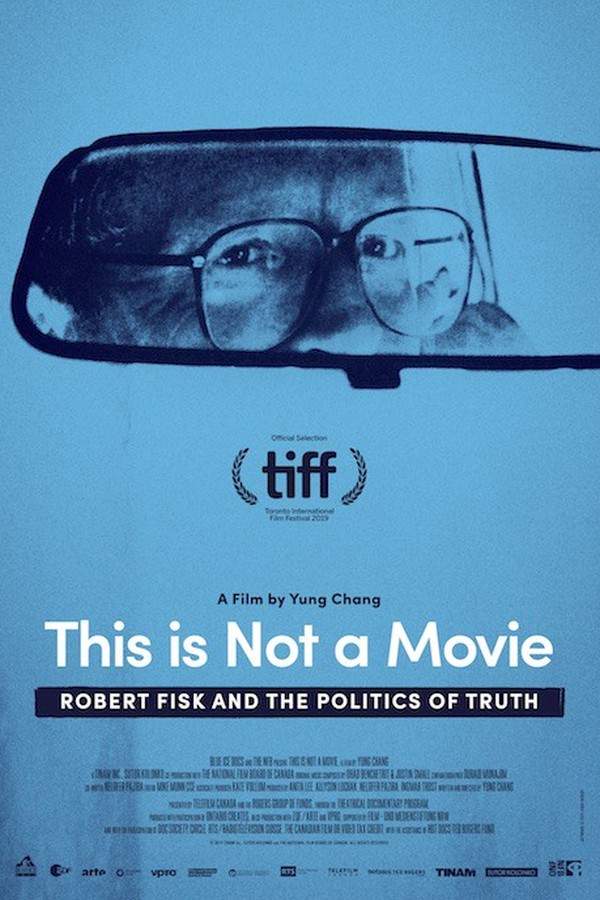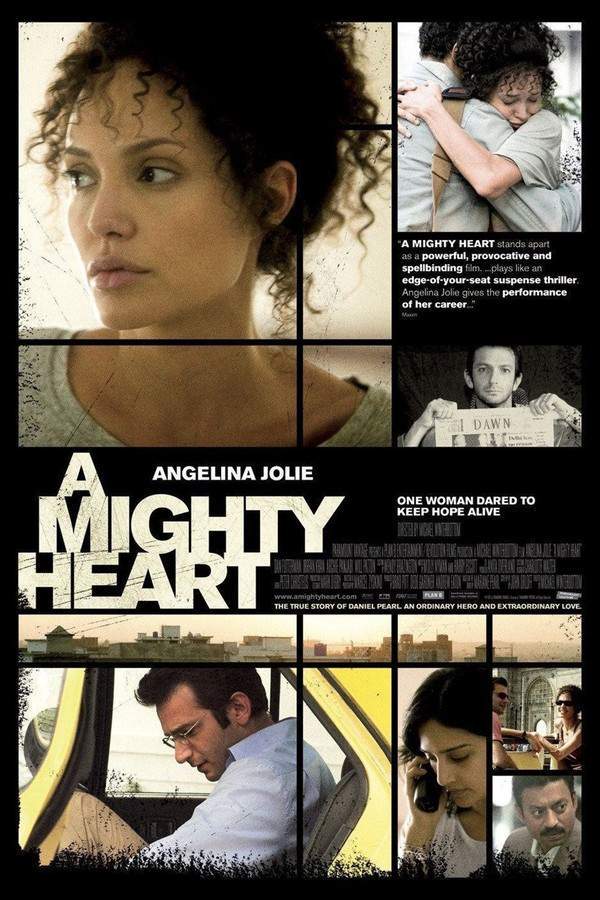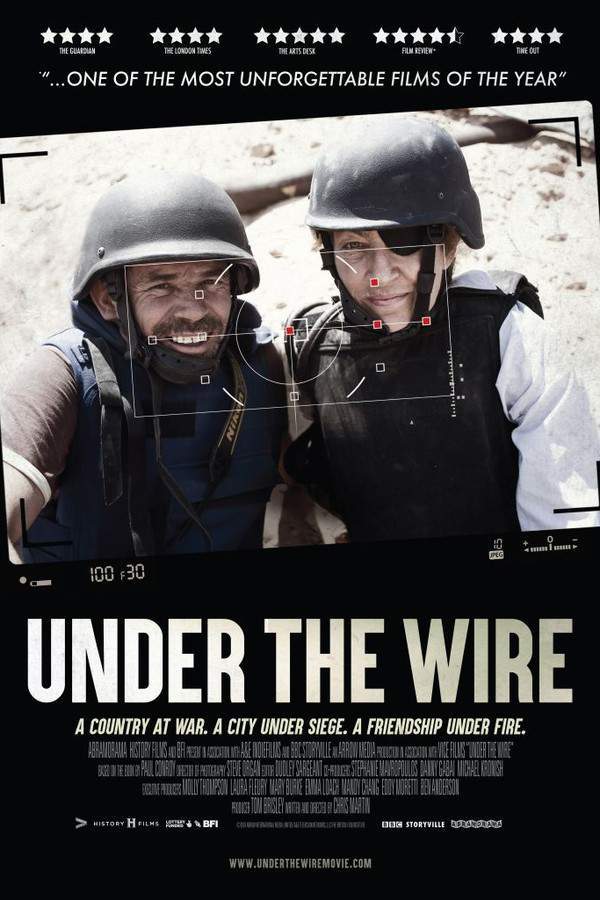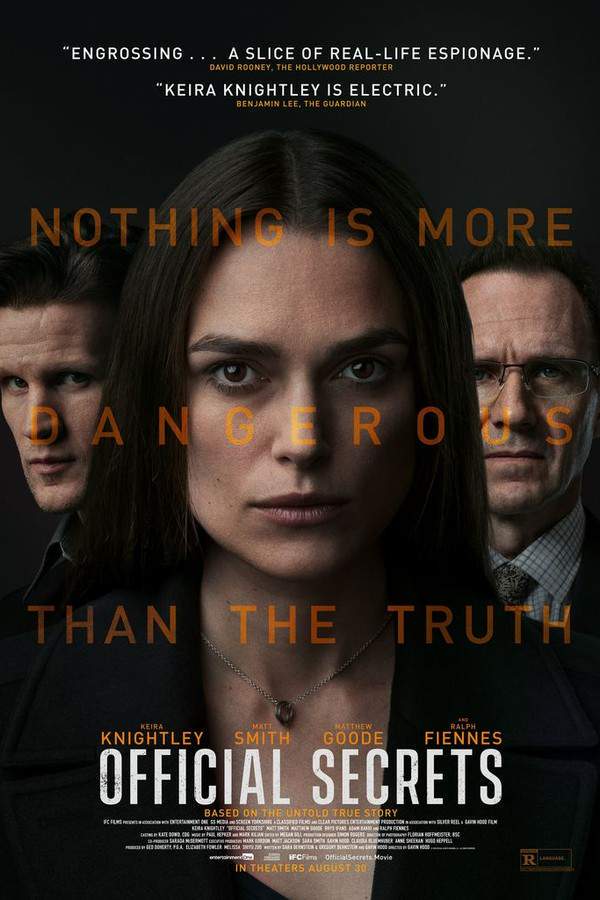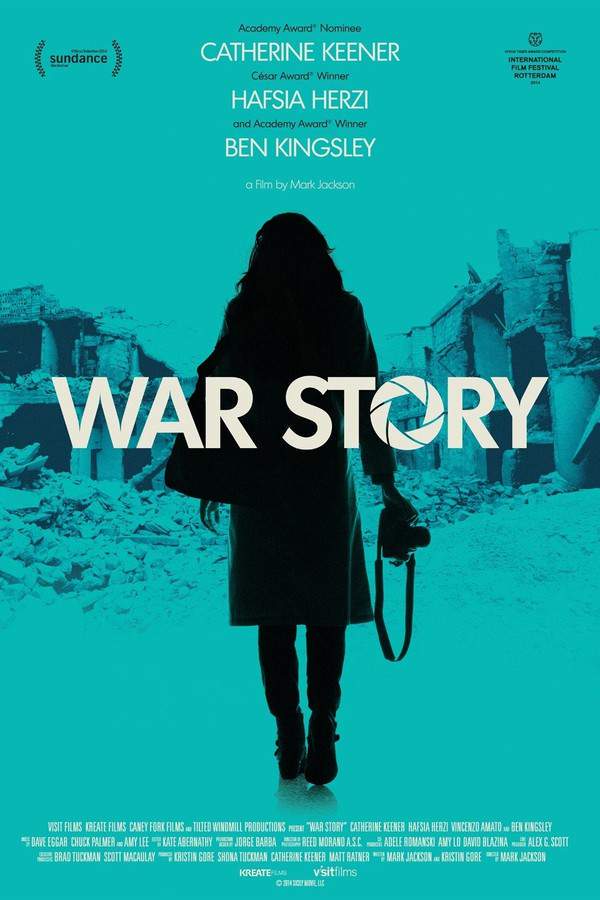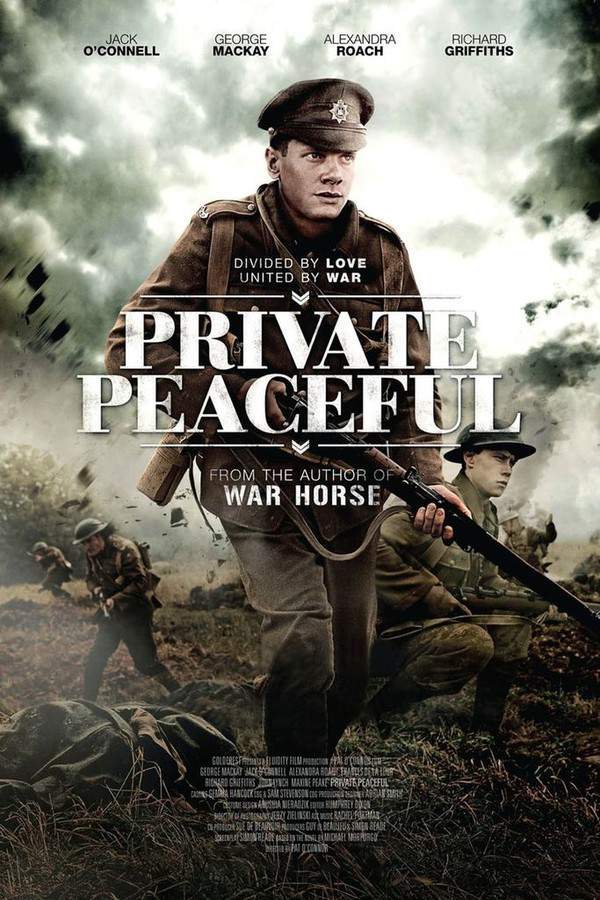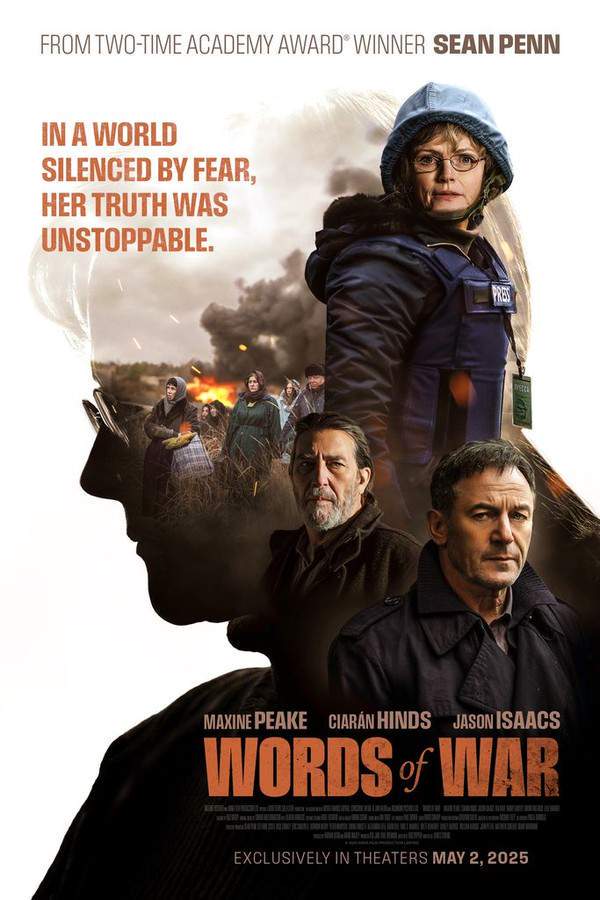A Private War 2018
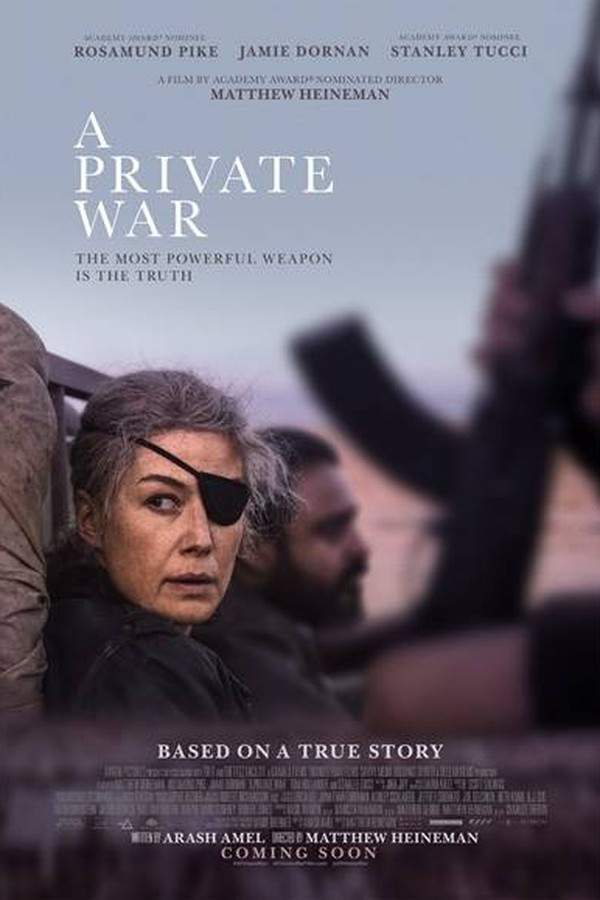
A fearless and rebellious journalist, Marie Colvin, risks her life to report from war zones and give a voice to those suffering. Marked by a distinctive eye patch, she travels to conflict areas like Sri Lanka and Syria, documenting the human cost of war. Alongside photographer Paul Conroy, she faces immense danger while striving to expose the truth and bear witness to the experiences of those caught in the crossfire.
Does A Private War have end credit scenes?
No!
A Private War does not have end credit scenes. You can leave when the credits roll.
Meet the Full Cast and Actors of A Private War
Explore the complete cast of A Private War, including both lead and supporting actors. Learn who plays each character, discover their past roles and achievements, and find out what makes this ensemble cast stand out in the world of film and television.

Stanley Tucci

Corey Johnson
Norm Coburn

Jeremie Laheurte

Nikki Amuka Bird

Rosamund Pike
Marie Colvin
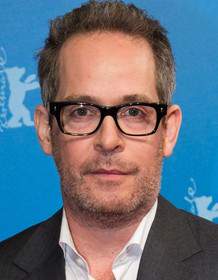
Tom Hollander
Sean Ryan

Jamie Dornan
Paul Conroy

Fady Elsayed
Mourad

Faye Marsay
Kate Richardson

Jesuthasan Antonythasan
Thamilselvan

Hilton McRae
Adam Watkins

Greg Wise
Professor David Irens

Alexandra Moen
Zoe

Amanda Drew
Amy Bentham

Gurnita Kaur Kahlon

Imogen King

Natasha Jayetileke
Sri Lankan Nurse

Raad Rawi

Raman Srinivasan
Tamil Group Leader

Yann Morine
External Links and Streaming Options
Discover where to watch A Private War online, including streaming platforms, rental options, and official sources. Compare reviews, ratings, and in-depth movie information across sites like IMDb, TMDb, Wikipedia or Rotten Tomatoes.
Ratings and Reviews for A Private War
See how A Private War is rated across major platforms like IMDb, Metacritic, and TMDb. Compare audience scores and critic reviews to understand where A Private War stands among top-rated movies in its genre.

The Movie Echo Score
Overall, A Private War excels in its portrayal of journalistic courage but falters in narrative cohesion. The film’s unflinching depiction of conflict zones draws viewers into Marie Colvin’s harrowing experiences, supported by resolute direction and a commanding lead performance. However, the pacing occasionally drags, and some dramatic sequences lack subtlety, undermining the emotional build-up. Despite these shortcomings, the balance of powerful imagery, strong characterization, and thematic resonance yields a compelling experience that lingers after viewing.
The Movie Echo Score Breakdown for A Private War

Art & Craft
In terms of direction and cinematography, the film delivers stark, visceral images of war zones that reinforce its themes. The jarring quick cuts between battlefield chaos and domestic settings create a cohesive visual rhythm, although occasional editing choices feel abrupt. The production design convincingly evokes varied locales, and the color palette underscores the grim atmosphere. Overall, the art and craft work solidly to support the narrative’s emotional impact.

Character & Emotion
When it comes to acting and character depth, Rosamund Pike anchors the film with a nuanced portrayal of Marie Colvin’s resilience and vulnerability. She conveys emotional turmoil through measured expressions and well-calibrated intensity. Supporting performances offer credible counterpoints to her resolve, although some interpersonal moments lack subtle dynamic interplay. Overall, the character work provides a compelling exploration of a driven journalist’s psyche and personal sacrifices.

Story & Flow
In terms of story and flow, the narrative establishes a clear trajectory through key assignments but occasionally falters in sustaining momentum. The pacing is deliberate, allowing for reflection, yet some scenes feel overly expository and hinder engagement. The decision to focus on professional stakes over quotidian details provides thematic clarity at the expense of deeper contextualization. Overall, the story delivers meaningful insight into journalistic dedication, though its coherence wavers.

Sensory Experience
When it comes to sensory experience, the film’s sound design and score underscore the tension of conflict zones with subtle urgency. The soundtrack punctuates moments of dread without overwhelming the visuals, while ambient effects immerse viewers in on-location atmospheres. Visual style maintains cohesion through a restrained color palette that highlights contrasts between war and civilian life. Overall, the sensory elements reinforce the film’s immersive portrayal of frontline reporting.

Rewatch Factor
In terms of rewatch factor, the film’s unrelenting portrayal of violence and personal sacrifice makes repeated viewing challenging. While the core performance remains compelling, the heavy thematic weight and deliberate pacing may diminish enjoyment on subsequent viewings. The focus on grim realities offers lasting resonance but limits casual re-engagement. Overall, the film offers limited replay value, as its intense subject matter may deter multiple viewings despite its emotional impact.

75
Metascore
7.1
User Score


87%
TOMATOMETER

63%
User Score

6.7 /10
IMDb Rating

68
%
User Score

3.5
From 24 fan ratings

4.20/5
From 5 fan ratings
Take the Ultimate A Private War Movie Quiz
Challenge your knowledge of A Private War with this fun and interactive movie quiz. Test yourself on key plot points, iconic characters, hidden details, and memorable moments to see how well you really know the film.
A Private War Quiz: Test your knowledge of the gripping story of war correspondent Marie Colvin in 'A Private War'.
Who plays the role of Marie Colvin in the film?
Rosamund Pike
Faye Marsay
Jamie Dornan
Stanley Tucci
Show hint
Awards & Nominations for A Private War
Discover all the awards and nominations received by A Private War, from Oscars to film festival honors. Learn how A Private War and its cast and crew have been recognized by critics and the industry alike.
71st Directors Guild of America Awards 2019
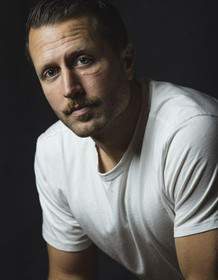
34th Artios Awards 2019
Low Budget – Comedy or Drama
76th Golden Globe Awards 2019

Best Original Song
Full Plot Summary and Ending Explained for A Private War
Read the complete plot summary of A Private War, including all major events, twists, and the full ending explained in detail. Explore key characters, themes, hidden meanings, and everything you need to understand the story from beginning to end.
In a world where journalism faces significant threats, Marie Colvin (Rosamund Pike) stands out as one of the most esteemed war correspondents of our era. Possessing an indomitable spirit and a rebellious nature, she ventures into the heart of global conflicts, giving a voice to those oppressed while constantly walking the fine line between courage and recklessness. Colvin began her formidable career in 1986, and by 2012, she finds herself divorced, residing in London, and maintaining a complicated relationship with her ex-husband, a writer.
Sean Ryan (Tom Hollander), the foreign editor of The Sunday Times and Marie’s boss, has differing opinions on her assignments. While he prefers she reports from Palestine, Marie is determined to travel to Sri Lanka to interview a rebel leader. In her time there, she covers how the government obstructs aid to areas controlled by the Tamil Tigers and illustrates the plight of a population that is either starving or suffering from illness due to the ongoing conflict.
After a close encounter where she is injured by a grenade coming out of a rebel zone, she adopts a signature eye patch. Marie seamlessly transitions from sipping martinis with London’s elite to directly confronting brutal dictators. Her courageous reporting earns her the Foreign Correspondent of the Year award in the same year, but at a personal cost. As the trauma of war affects her, she finds her relationships deteriorating, particularly recognizing that her ex-husband is dating other women. Despite the toll on her personal life, Marie remains unwaveringly devoted to her career.
Her quest to reveal the harsh truths of war leads her, along with renowned war photographer Paul Conroy (Jamie Dornan), to undertake a perilous assignment in Homs, Syria, in 2012. Their professional journey began during the Iraq War, where Marie, determined to teach Paul the intricacies of war reporting, takes him to Fallujah. Together, they uncover mass graves left behind by Saddam’s forces, all while Marie boldly travels ahead of U.S. military columns.
Inside the chaotic world of war, Marie’s steadfast commitment to telling human stories overshadows the expectations imposed by governments. She shares her struggles with depression, loss, and her deeply personal battles, including her experiences with miscarriages and a complicated relationship with food and body image.
Her relentless pursuit of truth takes her to various war-torn locations, including a fateful trip to Afghanistan where an IED strike results in numerous casualties. It is during this tumultuous time that she meets Tony Shaw (Stanley Tucci) at a London gathering; their connection flourishes amid the chaos of her life.
In 2011, while covering the Libyan uprising, Colvin witnesses horrific atrocities perpetrated by Gaddafi’s regime, including the systematic abuse of women as punishment for their support of the rebellion. The shifting tides of war hit close to home when she learns of her friend Norm Coburn (Corey Johnson) being tragically killed in the violence.
With an audacious spirit, Marie manages to interview Gaddafi, confronting him about his use of oil wealth to justify his brutal suppressions. She is present during his eventual downfall, where he meets a grim fate.
This journey culminates in her last assignment in Syria in 2012, where she bravely enters Homs—an active war zone under the siege of Assad’s forces. Documenting the harrowing narratives of trapped civilians, she goes against Sean’s wishes and chooses to conduct a live broadcast on CNN, exposing Assad’s assaults on innocents.
However, during this courageous broadcast, the regime locates her position, leading to missile strikes that claim Marie’s life. Paul manages to survive, but the loss of Marie on February 22, 2012, marks a poignant moment amidst the ongoing Syrian tragedy, with over 500,000 civilians losing their lives in the aftermath of her death.
Uncover the Details: Timeline, Characters, Themes, and Beyond!

Coming soon on iOS and Android
The Plot Explained Mobile App
From blockbusters to hidden gems — dive into movie stories anytime, anywhere. Save your favorites, discover plots faster, and never miss a twist again.
Sign up to be the first to know when we launch. Your email stays private — always.
Watch Trailers, Clips & Behind-the-Scenes for A Private War
Watch official trailers, exclusive clips, cast interviews, and behind-the-scenes footage from A Private War. Dive deeper into the making of the film, its standout moments, and key production insights.
Cars Featured in A Private War
Explore all cars featured in A Private War, including their makes, models, scenes they appear in, and their significance to the plot. A must-read for car enthusiasts and movie buffs alike.
A Private War Themes and Keywords
Discover the central themes, ideas, and keywords that define the movie’s story, tone, and message. Analyze the film’s deeper meanings, genre influences, and recurring concepts.
A Private War Other Names and Titles
Explore the various alternative titles, translations, and other names used for A Private War across different regions and languages. Understand how the film is marketed and recognized worldwide.
Similar Movies To A Private War You Should Know About
Browse a curated list of movies similar in genre, tone, characters, or story structure. Discover new titles like the one you're watching, perfect for fans of related plots, vibes, or cinematic styles.
Quick Links: Summary, Cast, Ratings, More

What's After the Movie?
Not sure whether to stay after the credits? Find out!
Explore Our Movie Platform
New Movie Releases (2025)
Famous Movie Actors
Top Film Production Studios
Movie Plot Summaries & Endings
Major Movie Awards & Winners
Best Concert Films & Music Documentaries
Movie Collections and Curated Lists
© 2025 What's After the Movie. All rights reserved.














